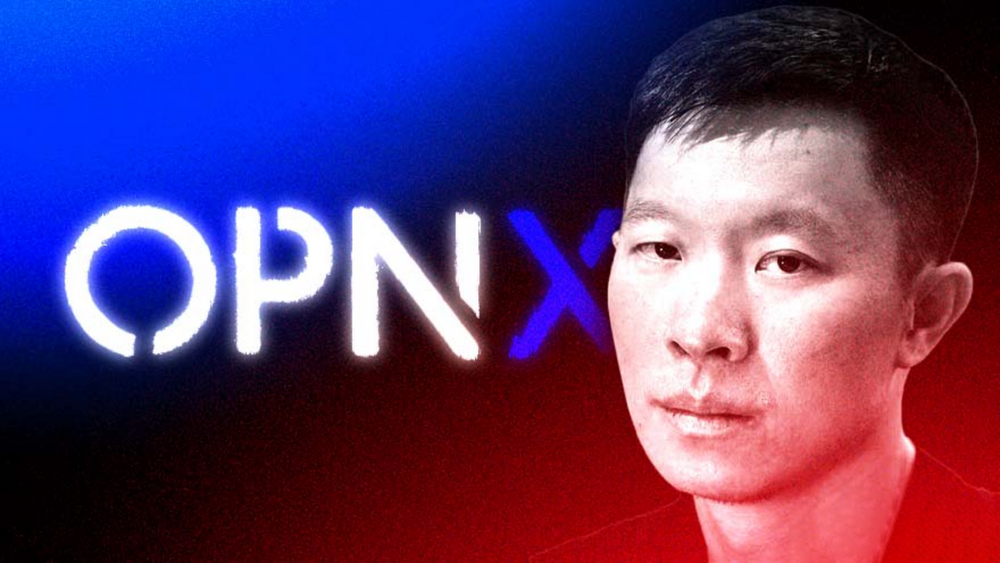Beware of Yale and Harvard Endowment Funds, revealing the encryption investment "Prince" Paradigm
Encryption arises in the grass, but the elite traditional investment institutions know more about how to enter the field than retail investors, and they are willing to pay for the new things. It can be said that if Harvard, Yale, Stanford and other colleges want to enter the field of encryption, it is better to set up an investment team with themselves, it is better to hand over the funds to Paradigm.
Among the many encryption investment institutions, there is such an investment institution with excellent background, but low-key and mysterious. It is one of the two encryption investment institutions invested by the Yale University Endowment Fund (the other is the famous a16z crypto), but there is not much publicity on the Internet. Its name is Paragigm.
College aura, star team, created less than a year. What kind of organization is Paragigm? The value of the carbon chain will pass this article to tell you the answer.
- Buffett: Does Bitcoin produce no value? I think it is correct, but not all right.
- One hand Yangou IEO, Bitfinex LEO is not worth buying
- The dark night is approaching, DApp rivers and lakes staged a realistic version of "Wolfman Kill"
01
Three god level co-founders with less than 10 investment teams
Paradigm was founded in the middle of 2018, when the market was filled with a mad cow market and a bear market covering the earth. But in this environment, a group of elites gathered together and decided to do a big job. They are Matt Huang, Fred Ehrsam and Charles Noyes.
Paradigm's first founder was Matt Huang, whose story was told by his father, Huang Qifu. Huang Qifu graduated from Stanford University Business School. After graduation, he taught at MIT, Stanford University, and the University of Pennsylvania. In 1989, he obtained a tenure as a tenured professor in Massachusetts. Shortly after obtaining the title of JCPenney's financial professor in 1994, he decided to leave the academic world and enter the investment community. First went to Goldman Sachs, then went to the long-term capital management company as the main partner, engaged in hedge fund management, responsible for the Asia-Pacific business. In the mid-1990s, during the prosperous period of long-term capital, Huang Qifu managed assets equivalent to China's GDP. His opinions will be heard by any central bank governor in the Asia-Pacific region.
As the eldest son of Huang Qifu, Matt Huang stepped up the path of his father, studying at the Department of Mathematics at MIT and going to Goldman Sachs for an internship. Until college, she founded a technology company with her classmates and was acquired by Twitter a few years later.
On February 19, 2014, Fortune exclusively reported on a corner of the US Sequoia Capital is digging Goldman Sachs and Twitter to help manage its sixth phase of the $900-100 million growth fund. Matt Huang is the corner of Twitter that was dug away.
In the four years of Sequoia Capital, Matt Huang has led several investments in blockchain startups, including Polychain Capital, Metastable and Filecoin. He finally decided to leave Sequoia Capital in June 2018 to create Paradigm, a cryptocurrency asset investment company, which also received an investment from Sequoia Capital.
Up to now, Matt Huang's most successful investment is the investment in today's headlines. The investment has grown more than 2,500 times over the six-year period.
Paradigm's second founder is Fred Ehrsam, who is well known in the cryptocurrency market. Fred Ehrsam started as a trader at Goldman Sachs and then joined Coinbase as a co-founder. He then resigned as Coinbase and served only as a member of the board of directors.
Fred Ethrsam met Matt Huang and may also be related to Matt's father, Huang Qifu. After the financial crisis, Huang Qifu announced his retirement due to the miscalculation of the market and the net value reduction. However, after retiring, Huang Qifu was so busy that he and other former financial colleagues and other financial professionals established Starling Ventures in 2011, and Coinbase happened to be one of the projects invested by Starling Ventures.
The company's third founder, Charles Noyes, is an investment director from Pentera Capital. Pentera Capital was established in 2003 by the former Chief Financial Officer and Macro Trading Director of Tiger Fund. In March 2014, Pentera announced an investment center shift to Bitcoin and other digital currency related investments.
The value of the carbon chain is compiled through online public information to organize Paradigm's employee information. As can be seen from the chart below, the small and fine is the style of Paradigm. Even today, the number of employees is still below 10 people. This is similar to Pentera Capital.
02
Funds from top elite schools
As an investment institution, the source of funding is important. The source of funds is an important reference in the investment community. Excellent investment teams can get top-notch funds, and excellent projects can also refer to resources other than funds that institutions can provide.
Paradigm's first fund was neither from Goldman Sachs nor from Sequoia, but from Yale University, which is $400 million. It is worth mentioning that the Paradigm investment institutions themselves include Yale University, Harvard University and Stanford University endowment funds.
American university endowment fund assets are currently about $550 billion, with Harvard University ranking first, about $39.2 billion (2018), and Yale University ranking second, about $29.4 billion. Yale’s annual net return for the past 30 years is 12.9%, and Harvard’s annual net return for the past 20 years is 10.4%, leading the majority of funds and investment institutions on the market. The annual net return of Buffett’s nearly 50 years is close to 20%.
The top universities have begun to turn their attention to the field of cryptocurrency, which is definitely a good thing for cryptocurrencies.
Another investment institution invested by the Yale University Endowment Fund is the more famous a16z crypto than Paradigm.
Harvard University suffered huge losses in the endowment fund because of investment chaos. As a result, the investment department cut half of its employees and replaced the new leadership. The new leadership is now trying to encrypt the currency.
03
New investment fund, the flavor of veteran star investors
At present, Paradigm has launched its first fund, all from the Yale University Endowment Fund, and invested in the following eight projects:
We can look at the tracks on which these 8 projects are located, as well as other investors in these projects besides Paradigm.
-Uniswap: Uniswap is a decentralized transaction protocol. Allows any user with a network to seamlessly exchange assets with ETH (or ERC20 tokens) through the Metamask wallet. The founder is Hayden Adams, a former mechanical engineer in Siemens in New York. Paradigm has exclusively invested in its seed round financing, amounting to $1 million, to expand the team. Uniswap is also a member of the recent hot DeFi project.
-O(1) Labs: O(1) Labs attempts to rebuild computing systems with encryption and cryptocurrency, and currently develops Coda, a cryptocurrency protocol. His seed round investment was funded by Fred Ehrsam, Polychain Capital and MetaStable Capital, and Coinbase Ventures, General Catalyst and Accomplice participated in the A round of investment. It can be seen from the investors that the project deserves special attention.
-Numerai: Numerai is a company that provides equity strategies for hedge funds and investment managers, using artificial intelligence for modeling transactions. In 2016, it received Series A financing from First Round Capital, Fred Ehrsam and Union Square Ventures.
-Tendermint: Founded in 2014, Tendermint is the parent company of Cosmos, dedicated to the infrastructure of the token economy. The A round of financing comes from Bain Capital and 1confirmation, which is mainly used for team expansion and development of the Cosmos network and ecosystem.
-Tagomi: Tagomi is a cryptocurrency e-broker service provider that provides institutional investors with brokerage services in Bitcoin, Ethereum and other cryptocurrencies. Its co-founder and CTO is Greg Tusar, who is the former head of electronic trading at Goldman Sachs. A total of two funds were raised, totaling approximately $28 million, with investors including Pantera Capital, Collaborative Fund, Digital Currency Group, Elad Gil, Founders Fund, Joe Lonsdale and SV Angel.
-Veil: Veil is a peer-to-peer trading platform based on Augur and 0x for forecasting markets and derivatives. The seed round investment comes from 1confirmation and Sequoia Capital.
-StarkWare: StarkWare is an Israeli blockchain privacy solution provider. A total of four founders are chief scientists and developers in the blockchain field. Eli Ben Sasson and Alessandro Chiesa are both founders of Zcash. This is one of the reasons why Zcash and StarkWare work together. Uri Kolodny is the CEO of several technology companies. Micheal Riabzev has worked in Intel and IBM research laboratories with 14 years of development experience and is a developer of the Zcash-StarkWare system. Intel Capital, which is less common in investment blockchain projects, is also involved in investing in StarkWare, which is also a recognition of Micheal Riabzev's development technology.
StarkWare made two rounds of financing, earned $36 million, and received $6.7 million in funding from the Ethereum Foundation. Investors are Atomico, Coinbase Ventures, Data Collective, Fred Ehrsam, Intel Capital, Matt Huang, Sequoia Capital, Undisclosed Investors, Bitland, Floodgate, MetaStable Capital, Naval Ravikant, Pantera Capital, Polychain Capital, Vitalik Buterin and ZCash.
-Spacemesh: Spacemesh is committed to developing the blockmesh operating system using the PoST protocol. The Spacemesh blockchain protocol is used on standard PCs, so it is resistant to ASIC mines and the inability to use cloud computing. Currently, Spacemesh has conducted two rounds of financing with a total amount of US$18 million, including 1kx investors, Arrington XRP Capital, Bain Capital, Coinbase Ventures, Collaborative Fund, Danhua Capital, Electric Capital, Gumi Cryptos, Jack Herrick, MetaStable Capital, Polychain Capital, Alignment Capital Group, Bancor Protocol, BRM Group, iAngels.
Through the above information, we can easily find that there are inextricable links between the co-investors of these eight projects, and most of them are established investment institutions. For example, investors in these projects flashed Coinbase, Union Square Ventures, Pantera Capital, Sequoia Capital, Polychain Capital, and Matt Huang and Fred Ehrsam. Although Paradigm is a newly established investment fund, the three co-founders have let the investment agency exude the taste of veteran encryption investment institutions.
Perhaps this is one of the reasons why wealth flows forever. Encryption arises in the grass, but the elite traditional investment institutions know more about how to enter the field than retail investors, and they are willing to pay for the new things. It can be said that if Harvard, Yale, Stanford and other colleges want to enter the field of encryption, it is better to set up an investment team with themselves, it is better to hand over the funds to Paradigm.
Author: hydrogen 3
Edit: Carbon 14
Reference materials:
[1].https://app.cbinsights.com/profiles/i/7Q2P3/investments
[2].Yale University Enters Cryptocurrency World, Invests $400 Million into Paradigm Crypto Fund.https://bitcoinexchangeguide.com/yale-university-enters-cryptocurrency-world-invests-400-million-into-paradigm-crypto-fund/
[3].Matt Huang Leaving Sequoia Capital to Start Crypto Fund With Fred Ehrsam.https://www.wsj.com/articles/matt-huang-leaving-sequoia-capital-to-start-crypto-fund-with-fred -ehrsam-1527852638
[4].Yale University Said to Invest in $400 Million Paradigm Crypto Fund.https://www.coindesk.com/yale-university-said-to-invest-in-400-million-paradigm-crypto-fund
[5]. Sequoia, University Endowments Backing New $400 Million Crypto Fund Paradigm.https://www.wsj.com/articles/sequoia-university-endowments-backing-new-400-million-crypto-fund-paradigm-1538782670
[6].Yale University Has Invested in Two Cryptocurrency Funds: Report.https://www.ccn.com/yale-university-has-invested-in-two-cryptocurrency-funds-report
[7].Why Is Harvard's Endowment Jumping Into Crypto?.https://www.investopedia.com/why-is-harvard-s-endowment-jumping-into-crypto-4684672
We will continue to update Blocking; if you have any questions or suggestions, please contact us!
Was this article helpful?
93 out of 132 found this helpful
Related articles
- Tether Chronicles
- Zhu Jiaming: The Digital Economy Fifty Years, From "Singularity" to "Big Bang"
- Market Analysis on May 5: A Brief Talk on the Similarities between the Current Market and the Beginning of the 17th
- Facebook data leakage victim: Since it is impossible to prevent data from being sold, it is better to sell it myself.
- Babbitt column | Blockchain + Construction: Lubricants for urbanization machines?
- USDT Thunder, how big is the impact on Bitcoin?
- I regret to miss Google’s Buffett and intend to get involved in the blockchain.






